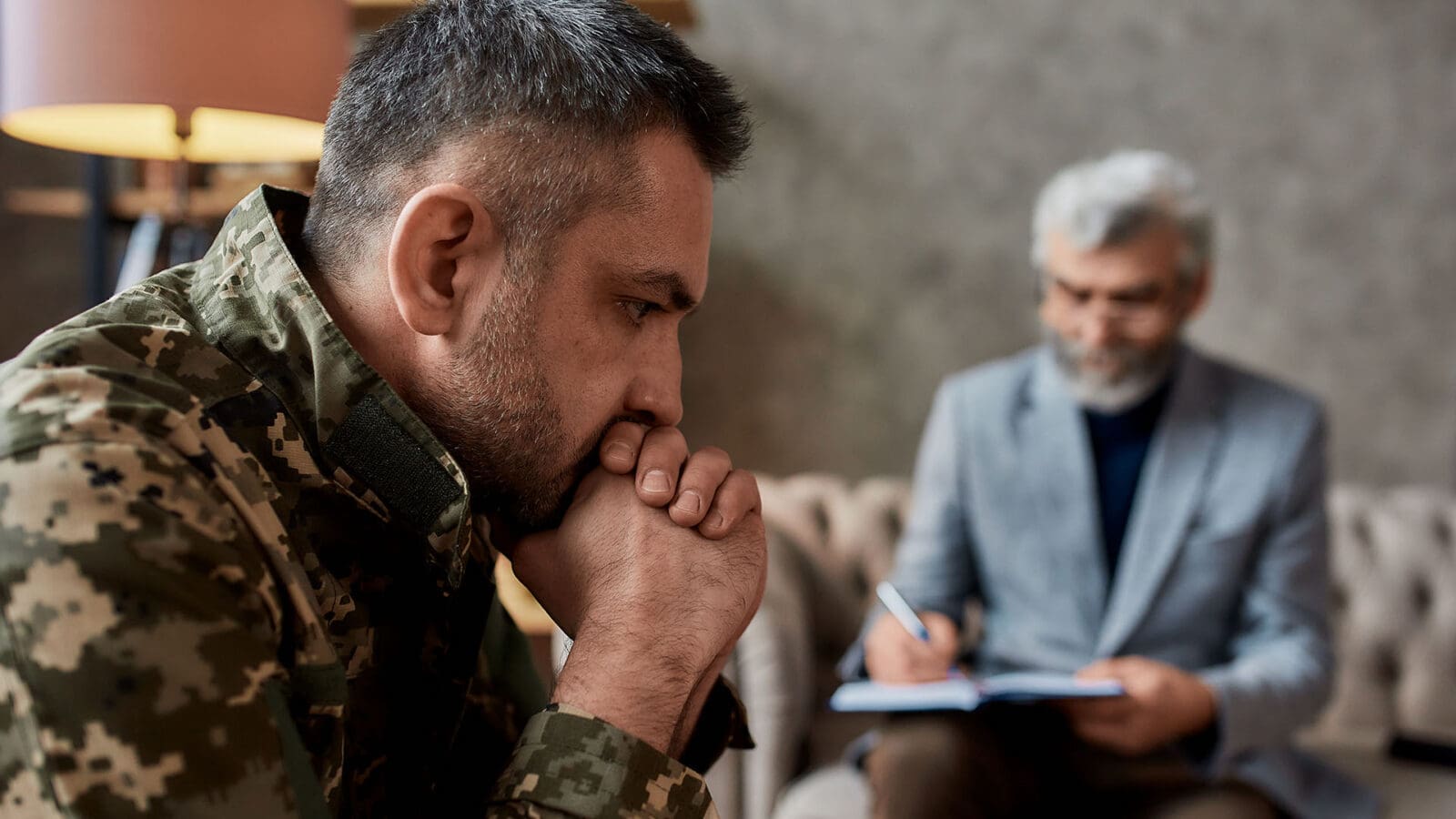Absolutely the best attorney for getting your VA benefits. After 7 years of denial, I found Brendan Garcia of VetLaw, He reviewed my case, set up a plan , scheduled my video hearing in front of a Veteran law judge, flew out to Phoenix to be there with me during the hearing. Hired a doctor to help draft a report to help my case. When all the smoked cleared, I’m now collecting max disability monthly, back pay beyond my wildest dreams. Brendan Garcia never stopped. He is an expert in Veterans law. Best decision of my life was to have him on my side. Bar none, Brendan is a terrific VA benefits attorney!
Understand VA Disability Ratings for Anxiety Disorders and How to Secure a VA Rating for Anxiety
The Department of Veterans Affairs (VA) may offer disability compensation to a veteran whose fear causes them to experience panic attacks. Anxiety disorders can be challenging to identify, and symptoms may not manifest until a veteran has already left active duty service.
VetLaw’s team of qualified lawyers can offer invaluable advice for filing an initial application for disability benefits. If you are a veteran who has already received a denial for your anxiety claim, consult a VA-accredited attorney for help with an appeal.
What Qualifies For Anxiety Disorders
Anxiety can manifest in many different ways depending upon the person but is usually characterized by persistent and excessive feelings of fear or worry. VA may grant compensation for the following diagnoses:
- Generalized anxiety disorder
- Phobias
- Obsessive-Compulsive Disorder
- Panic Disorder or agoraphobia
- PTSD
Anxiety disorders and other mental health conditions are subject to the rating system outlined in 38 C.F.R. §4.130. VA rates mental health conditions in severity from 0 to 100 percent disability.
In addition, ratings below 100 percent may still lead to a grant of a total disability rating based on individual unemployability (TDIU), depending on the symptoms of the condition.
One of our skilled attorneys can help a former servicemember determine whether their symptoms would qualify as a compensable anxiety disorder and whether TDIU may be warranted.
Meeting VA’s Requirements for Anxiety Claims
For anxiety claims, a veteran must demonstrate to the VA that their psychological condition is formally diagnosed and directly related to their active duty service. In addition, medical records showing the severity of the condition can be used to help prove the exact level of disability warranted.
Veterans can prove entitlement to service connection by pointing to service records from around the time they first noticed psychological symptoms while on active duty. Lay statements, counseling records, or records of job changes may also be useful. VA or private medical records could also adequately document current feelings of fear or anxiety.
A licensed medical expert’s professional opinion that a former servicemember’s symptoms of fear can be linked to their time on active duty is substantial evidence in anxiety claims and may ultimately help lead to an award of benefits.
Otherwise, a veteran who receives a denial despite these pieces of evidence may file an appeal to challenge VA’s decision. If the VA needs more evidence for a successful appeal, VetLaw’s diligent legal team can help you develop the record and request a hearing before a Veterans Law Judge.
Effects on a Veteran’s Life
Anxiety in its worst forms can prevent a former servicemember from leaving their home. This type of mental health condition is known as agoraphobia and is characterized by a fear of the outside world.
Any life-altering effects a veteran suffers as a result of their excessive fear should be documented and included in their anxiety claims. If a former servicemember is struggling to determine which of their symptoms should be highlighted in their application for benefits, they should meet with an experienced attorney from our firm to discuss their options.
Our team can also explain how to secure long-term disability for anxiety disorders.
Contact an Attorney Who is Familiar with Appealing a Veteran Anxiety Claim Denial
VetLaw’s team of dedicated professionals can help you brainstorm what evidence you may need to persuade VA to grant your anxiety claim. If you have already received a denial of benefits, a VA-accredited lawyer from our firm can prepare you to offer testimony in a hearing before the Board of Veterans’ Appeals. We also assist with VA mental health claims involving a wide range of service-connected conditions.
To start the appeals process on your anxiety claim, schedule a consultation with an attorney from VetLaw today.










